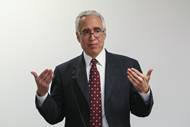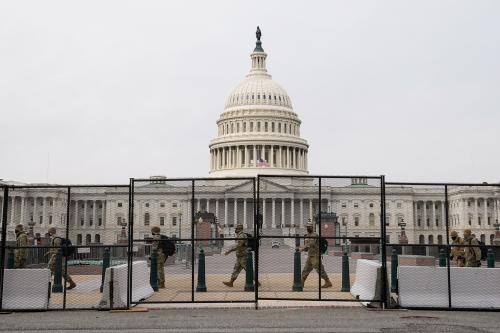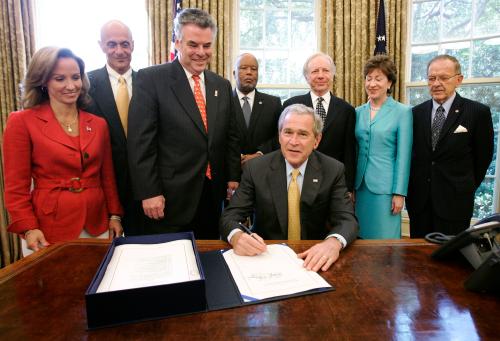Summary of Findings
Having given a vote of no confidence to the presidential appointments process in an earlier Presidential Appointee Initiative public opinion survey taken in July, Americans have turned much more positive in the wake of the September 11 tragedies.
- 79 percent of Americans now have a very or somewhat favorable view of presidential appointees, up nearly 20 percentage points from last July.
- 47 percent of Americans now believe that presidential apointees are motivated primarily by serving their country’ best interests, up from 35 percent in July, while only 37 percent said that presidential appointees are primarily motivated by advancing their career, down from 54 percent last summer.
- 31 percent of Americans now say presidents choose appointees who are the most qualified for the job, up from 18 percent in July, while the number who say the president mainly picks people who played a role in the president’ campaign fell from 26 percent in July to 16 percent by October.
- 42 percent of Americans now say they would strongly encourage a close friend who is successful in business to take a presidential appointment, up from 30 percent in July.
Americans have clearly come to believe that presidential appointees play a critical role in government, particularly during the current terrorist crisis. They are not only paying more attention to news stories about who President Bush is selecting as presidential appointees, they can better identify key cabinet members such as Defense Secretary Donald Rumsfeld. It is no surprise, therefore, that 90 percent of Americans would say that presidential appointees play an extremely or very important role in periods of crisis like this.
This report will address three questions about public opinion in the wake of the September 11 attacks. First, how has confidence in government, its leaders, and employees changed as a result of the tragedies? Second, how has opinion changed toward presidential appointees and the presidential appointments process? And third, what might explain the increase in overall trust in government?



